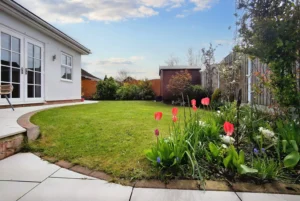


Here are some tips to help you get your garden looking its best for the summer:
- Plan and design: Start by planning the layout and design of your garden. Consider the placement of flower beds, shrubs, and any other features you want to incorporate. Take into account factors such as sunlight, shade, and water requirements.
- Soil preparation: Prepare your soil by removing weeds, rocks, and debris. Loosen the soil with a garden fork or tiller, and amend it with compost or organic matter to improve its fertility and drainage.
- Plant selection: Choose plants that thrive in your local climate and are suitable for the summer season. Consider the sunlight requirements, water needs, and blooming periods of different plants. Opt for a mix of flowers, shrubs, and vegetables to add variety and interest.
- Mulching: Apply a layer of mulch around your plants. Mulch helps retain soil moisture, suppresses weeds, and moderates soil temperature. Use organic mulch such as wood chips, straw, or shredded bark.
- Watering: Proper watering is crucial for healthy plants. Water deeply and less frequently to encourage deep root growth. Water in the morning or late afternoon to minimize evaporation. Consider using a drip irrigation system or soaker hoses to deliver water directly to the roots.
- Fertilizing: Provide your plants with the nutrients they need by fertilizing regularly. Use a balanced fertilizer or opt for organic alternatives. Follow the instructions on the packaging for application rates and timings.
- Pruning and deadheading: Prune overgrown branches and remove dead or diseased plant parts to promote healthy growth. Deadhead flowers by removing spent blooms, which encourages more flowers to bloom and keeps the plants looking tidy.
- Pest control: Monitor your garden regularly for pests and take appropriate measures to control them. Use organic pest control methods whenever possible to minimize harm to beneficial insects and the environment.
- Weed control: Stay on top of weed growth by regularly removing weeds. Hand-pulling or using a hoe are effective methods. Consider applying mulch to smother weed growth and reduce the need for constant weeding.
- Regular maintenance: Dedicate time each week to maintain your garden. Remove debris, check for signs of plant stress or disease, and make adjustments as needed. Regular maintenance will help keep your garden healthy and vibrant.



Remember, gardening is a continuous process, so enjoy the journey and make adjustments as you go. Happy gardening!
#helpingyoumove in Lancaster, Morecambe, Preston, and South Ribble
 Blog
Blog





